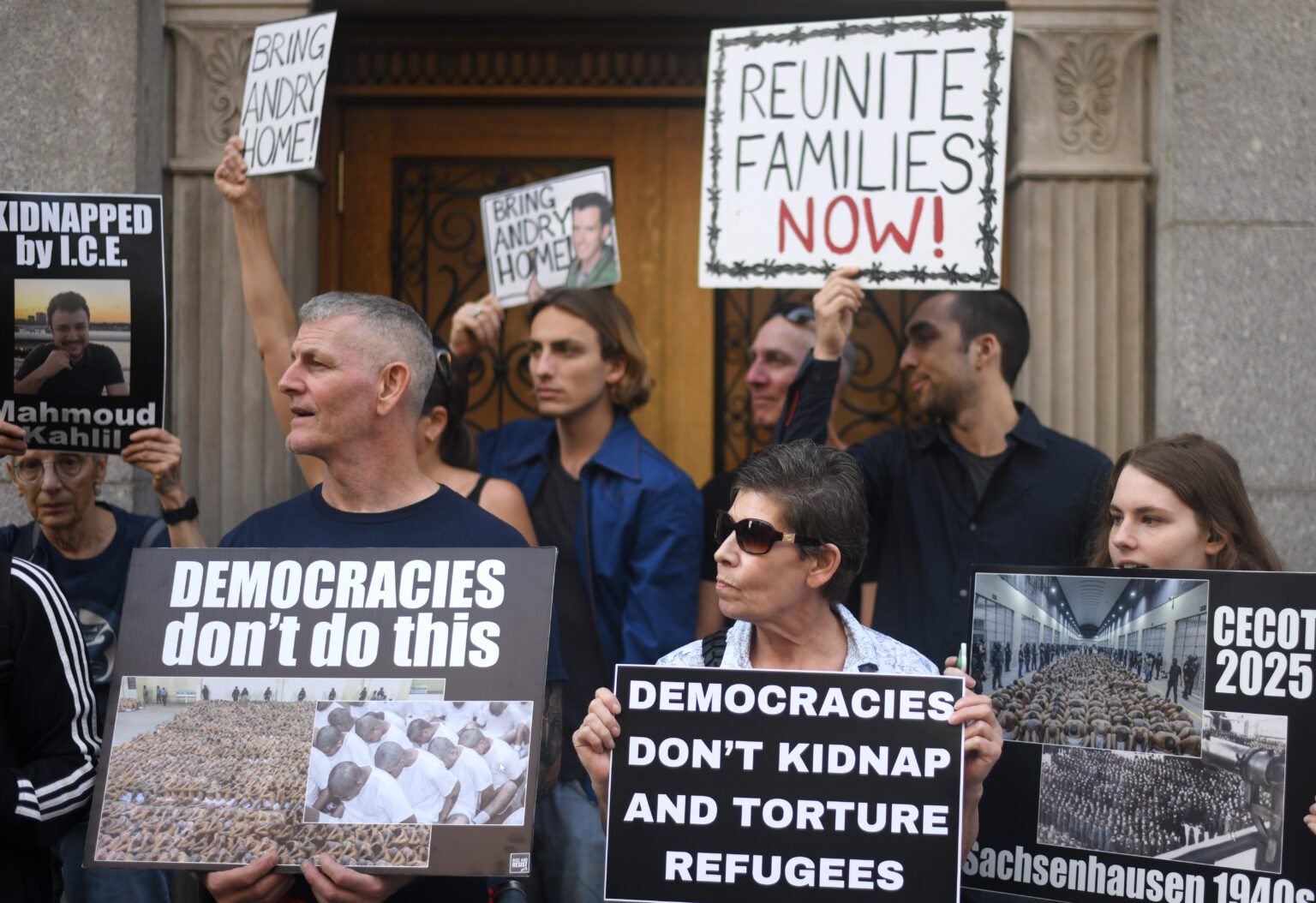Legal Ruling Demands Fair Hearing Rights for Deported Venezuelan Migrants
A federal judge has mandated that the initial group of Venezuelan migrants deported to El Salvador under an infrequently used wartime statute must be granted the chance to challenge their removal, even if they are currently outside U.S. jurisdiction. This decision underscores the importance of safeguarding legal rights amid national security measures.
Judicial Intervention in Deportation Procedures
Chief Judge James E. Boasberg of the U.S. District Court emphasized that the 137 individuals, accused by the government of belonging to the violent Tren de Aragua gang, were deprived of their fundamental right to contest their deportation before being sent to a notorious Salvadoran detention facility. The judge highlighted that these migrants were transported under the Alien Enemies Act in March without proper legal safeguards. He has set a deadline of June 11 for the Department of Justice to propose procedures that would allow these detainees to access legal recourse from their current location in El Salvador.
Balancing Security Concerns and Legal Protections
While acknowledging the sensitive nature of national security and diplomatic relations, Judge Boasberg clarified that he is not ordering specific actions at this stage. Instead, he is giving the government an opportunity to outline how it plans to rectify the procedural deficiencies. The court’s cautious approach aims to prevent a scenario where individuals could be arbitrarily detained or deported without meaningful legal review, a concern raised by the judge regarding the potential for abuse of power.
Controversy Over the Use of Wartime Laws in Immigration Enforcement
The Trump administration’s use of the Alien Enemies Act to expedite the deportation of suspected gang members has faced widespread criticism. Several federal courts across states such as Texas, New York, California, Colorado, and Pennsylvania have temporarily halted similar deportations, citing insufficient notice-only 24 hours-given to detainees, which hampers their ability to mount legal challenges before removal.
Supreme Court’s Stance and Ongoing Legal Debates
The Supreme Court has ordered that detainees under the Alien Enemies Act must be provided with adequate time to seek legal remedies, but it has yet to rule on the constitutionality of the Trump administration’s specific application of the law to deport foreign gang affiliates. The deported individuals involved in Boasberg’s case were sent to El Salvador before these rulings, with their flights landing at the notorious CECOT prison despite a prior court order to halt the flights.
Recent Developments and Court Findings
Following the deportations, Judge Boasberg initiated contempt proceedings to investigate whether federal officials intentionally disobeyed his earlier order. He found that the migrants’ rights had been “plainly deprived,” and new evidence suggests that many may not have ties to Tren de Aragua, raising questions about the legitimacy of their detention and accusations. The judge instructed the government to treat these cases as if proper procedures had been followed, ensuring fair legal processes.
Challenges in Reversing Deportations and Ensuring Justice
Despite the ruling, the judge recognized the logistical difficulties in providing hearings for detainees in CECOT. He expressed skepticism about the government’s claims that, under the U.S.-El Salvador agreement, the deportees cannot be returned for legal proceedings and are no longer under U.S. custody. Notably, the judge expressed doubts about the government’s assertions, citing concerns over its conduct during the case.
Reactions and Future Implications
The Department of Justice has yet to comment on the ruling, which remains subject to appeal. Meanwhile, Lee Gelernt, a senior attorney with the ACLU representing the deported migrants, praised the decision. He emphasized that the court’s ruling is a crucial step toward rectifying what he described as “blatant constitutional violations,” warning against leaving individuals in foreign detention centers without recourse, potentially for life.

